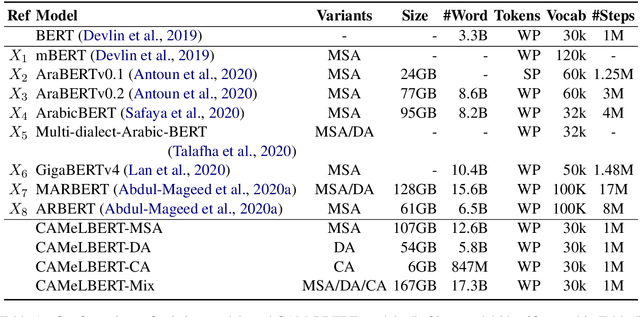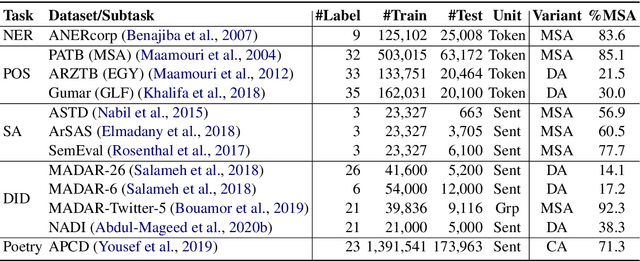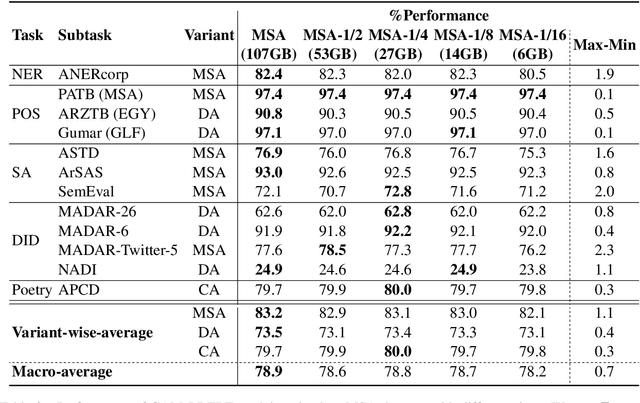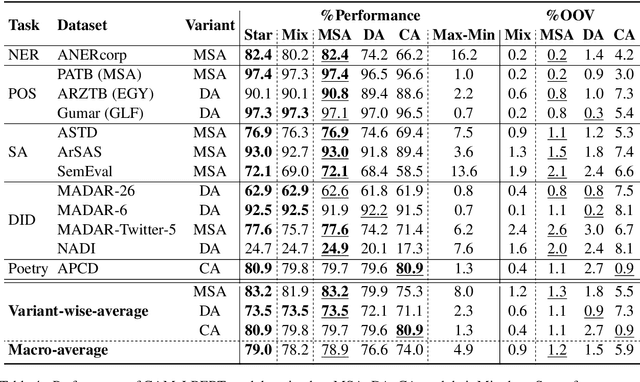The Interplay of Variant, Size, and Task Type in Arabic Pre-trained Language Models
Paper and Code
Mar 11, 2021



In this paper, we explore the effects of language variants, data sizes, and fine-tuning task types in Arabic pre-trained language models. To do so, we build three pre-trained language models across three variants of Arabic: Modern Standard Arabic (MSA), dialectal Arabic, and classical Arabic, in addition to a fourth language model which is pre-trained on a mix of the three. We also examine the importance of pre-training data size by building additional models that are pre-trained on a scaled-down set of the MSA variant. We compare our different models to each other, as well as to eight publicly available models by fine-tuning them on five NLP tasks spanning 12 datasets. Our results suggest that the variant proximity of pre-training data to fine-tuning data is more important than the pre-training data size. We exploit this insight in defining an optimized system selection model for the studied tasks.
 Add to Chrome
Add to Chrome Add to Firefox
Add to Firefox Add to Edge
Add to Edge